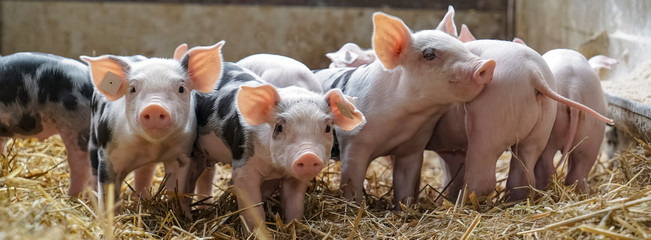Analysts say move is more about politics than genuine concern over disease outbreak
China has banned pork imports from Germany on the eve of critical trade and investment talks, in a move analysts describe as a warning to Europe not to defy Beijing on a range of issues.
China’s Ministry of Agriculture and General Administration of Customs said in a joint statement on Saturday that China would stop accepting pork and related products from Germany. It said the move was intended to “protect the animal husbandry industry and prevent the spread of the disease” after Europe’s largest economy reported its first case of African swine fever.
The disease is common across China and has decimated its pig population in recent years. The ban came just two days before Chinese president Xi Jinping is scheduled to discuss trade issues in a video meeting with Angela Merkel, German chancellor, as well as Charles Michel and Ursula von der Leyen, presidents of the European Council and European Commission respectively, on Monday.
Analysts said the import ban has more to do with political considerations than concerns about China’s pig farming industry. “Beijing wants to give Berlin a warning shot that we have the ability to undermine you if you don’t listen to us,” said Zhuang Bo, an analyst at TS Lombard, a consultancy.
Germany plays a key role in the ongoing EU-China investment negotiations China hopes could conclude by the end of the year. Brussels warned in June that it may impose new restrictions on Chinese investment into Europe unless Beijing agrees to level the playing field on trade and reduce a long list of obstacles facing European companies in China.
The pork import ban fits a pattern of “coercive diplomacy”, in which Beijing imposes trade and investment restrictions on countries it has diplomatic disagreements with. It comes soon after a visit to the continent by Chinese foreign minister Wang Yi, in which he received a cool reception, particularly in Berlin, as he tried to convince European leaders to reject publicly the US’s more confrontational approach towards China.
The German Ministry of Agriculture said it is in talks with the Chinese government, trying to convince the country to scale back the import ban and only block pork that was produced in the regions that are actually affected by swine fever.
Such an arrangement is already in place within the EU. Joachim Rukwied, the president of Germany’s farmer association, told German news agency DPA that German farmers were “very concerned” about China’s move, which he called “excessive and unacceptable”.
China accounts for around half the world’s annual pork consumption and the import ban will deal a blow to Germany’s pork exporters, which now count on China for almost two-thirds of their business, according to official data. Germany is China’s third-biggest supplier of pork products after the US and Spain. Chinese purchases of German pork more than doubled in the first four months of this year from a year earlier.
German pork exports to China totalled €835m in the first half of this year, compared with €1.2bn for all of last year.
Chinese pork imports and pork prices are soaring because the country’s own herds have been ravaged by African swine fever in the past two years.
Sublime China Information, a consultancy, estimates China’s pig population is at least a third smaller than it was before the virus emerged in the country in 2018. As a result, average pork prices in 22 major cities have more than doubled over the past two years. “The import curb will hurt German pig farms as much as average Chinese consumers who are struggling with sky-high pork prices,” said an analyst at SCI, who declined to be named.
